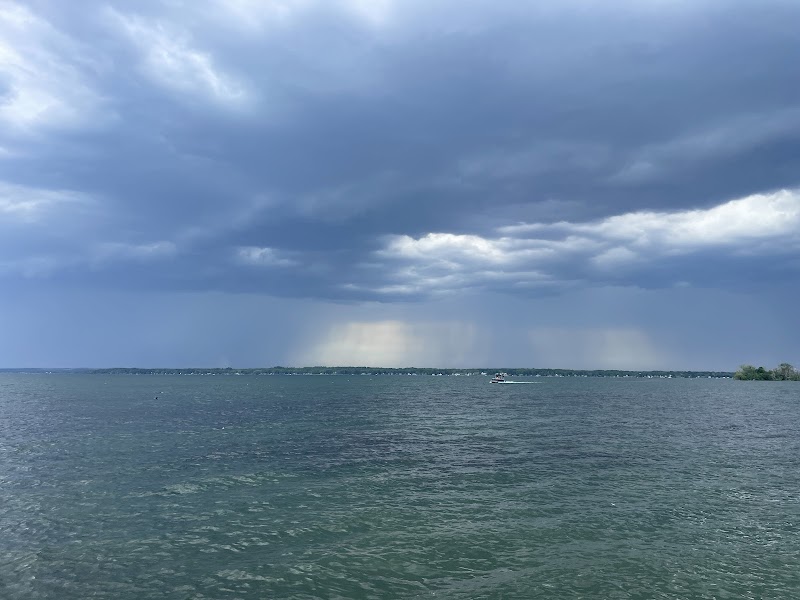
Biking the Erie Canalway: A Ride Through Time and Towns in New York
Ride through history on the Erie Canalway Trail, a 360-mile route weaving between vibrant towns and scenic waterways in New York. This accessible path invites cyclists of all levels to explore diverse landscapes while connecting with the State’s rich canal heritage.
Stay Hydrated Along the Way
Several towns along the Erie Canalway offer refill stations, but carrying at least 2 liters of water ensures you won’t be caught thirsty, especially on longer stretches between stops.
Plan for Weather Shifts
Open sections of the trail expose riders to wind and sun; pack layers and carry sunscreen to adapt quickly to changing conditions throughout the day.
Use a Reliable Navigation Tool
Though marked well, some trail deviations and nearby detours require GPS or map apps to avoid busy roads and ensure a smooth ride.
Schedule Rest Stops in Canal Towns
Towns like Lockport and Fairport provide ideal places to recharge, with cafes, bike shops, and local markets that offer a satisfying break from biking.
Biking the Erie Canalway: A Ride Through Time and Towns in New York
Stretching over 360 miles through New York State, the Erie Canalway Trail offers an immersive journey where history and landscape come alive under your wheels. This paved and mostly flat route threads together a series of small towns, bustling cities, and placid waterways that stretch from Albany to Buffalo. As you pedal, the canal dares you onward, its steady current echoing the rhythms of centuries past—each lock and towpath an invitation to experience the story of America’s engineering marvel firsthand.
The ride unfolds through a changing environment—forest-shaded stretches dip into open fields where the wind pushes you forward, while quaint villages invite you to pause and refuel. Elevation gains are modest, making it accessible for riders of various skill levels; expect mostly smooth asphalt with occasional gravel sections near restored canal locks. On average, daily distances range from 20 to 40 miles depending on your itinerary, with plentiful rest stops and services in canal towns.
To prepare, pack light but smart: hydration systems are essential, and breathable clothing suits the shifting temperatures across seasons. Timing your ride between late spring and early fall optimizes warmth and daylight hours, while avoiding the muddy spring thaw and the early winter freeze.
While the trail may appear gentle, respect the endurance the ride asks for—sudden gusts off the open water remind you that nature here rides its own course. Navigational markers are clear, yet a GPS or map app remains a wise companion, especially near the more remote stretches. Each town offers a slice of local culture, from canal museums to artisan shops, enriching the experience beyond the ride itself.
Whether you’re tracing George Washington’s footsteps at Schuylerville, pausing beneath the towering lift bridge at Lockport, or enjoying fresh produce markets in Fairport, the Erie Canalway presents a blend of adventure, history, and practical exploration. It’s a ride that’s fiercely alive, encouraging you not just to witness, but to engage with the pulse of New York’s waterways and communities.
Nearby Trips
All Adventures
Boat Charters
Water Activities
Adventures near Syracuse, New York
Discover the unique and memorable adventures that make Syracuse, New York special.
Frequently Asked Questions
Can beginners handle the Erie Canalway Trail?
Yes, the trail’s mostly flat terrain and paved surface make it suitable for beginners, though building up endurance for longer days is recommended.
Are there services available along the route?
Yes, frequent canal towns offer bike shops, cafes, and restrooms. Planning daily stops around these towns is practical for resupply and rest.
Is the trail accessible year-round?
The best riding conditions occur from late spring to early fall. Winter months bring snow and ice, making many sections unsuitable for biking.
What type of bike is best for the Erie Canalway?
A hybrid or touring bike with comfortable tires that can handle paved and occasional gravel paths works best.
Are pets allowed on the trail?
Pets are generally permitted but should be leashed and owners need to follow local regulations and clean up after them.
Is camping available near the trail?
Several state parks and campgrounds are located near the canal towns offering tent and RV sites for overnight stays.
Recommended Gear
Hydration pack or water bottles
Ensures consistent hydration throughout long stretches, especially where water stops are sparse.
Multi-layered clothing
Allows you to adjust to fluctuating temperatures and wind near open waterways.
Puncture-resistant bike tires
Protect against gravel and occasional rough patches along the canal towpath.
Portable bike repair kit
Essential to fix mechanical issues mid-ride, keeping your adventure on course.
Local Insights
Hidden Gems
- "The abandoned Flight of Five Locks in Lockport offers a fascinating glimpse into canal engineering evolution."
- "Hiking around the Erie Canal Nature Trail near Jordan reveals glimpses of river otters and herons."
- "Fairport’s historic Erie Canal Lock 32 features a nearby farmers market that highlights local artisans."
- "Watch for the hummingbird migration in the Blandy Experimental Farm area, adjacent to the trail."
Wildlife
- "Great blue herons nest along the canal banks."
- "Beavers actively maintain local wetlands, visible in some quieter sections of the trail."
- "Seasonal migrations of bald eagles can be spotted near open water stretches."
History
"The Erie Canal was completed in 1825, revolutionizing commerce by linking the Atlantic Ocean to the Great Lakes. Along the trail, many refurbished locks and historic villages preserve stories of this pioneering infrastructure project that shaped America's growth."